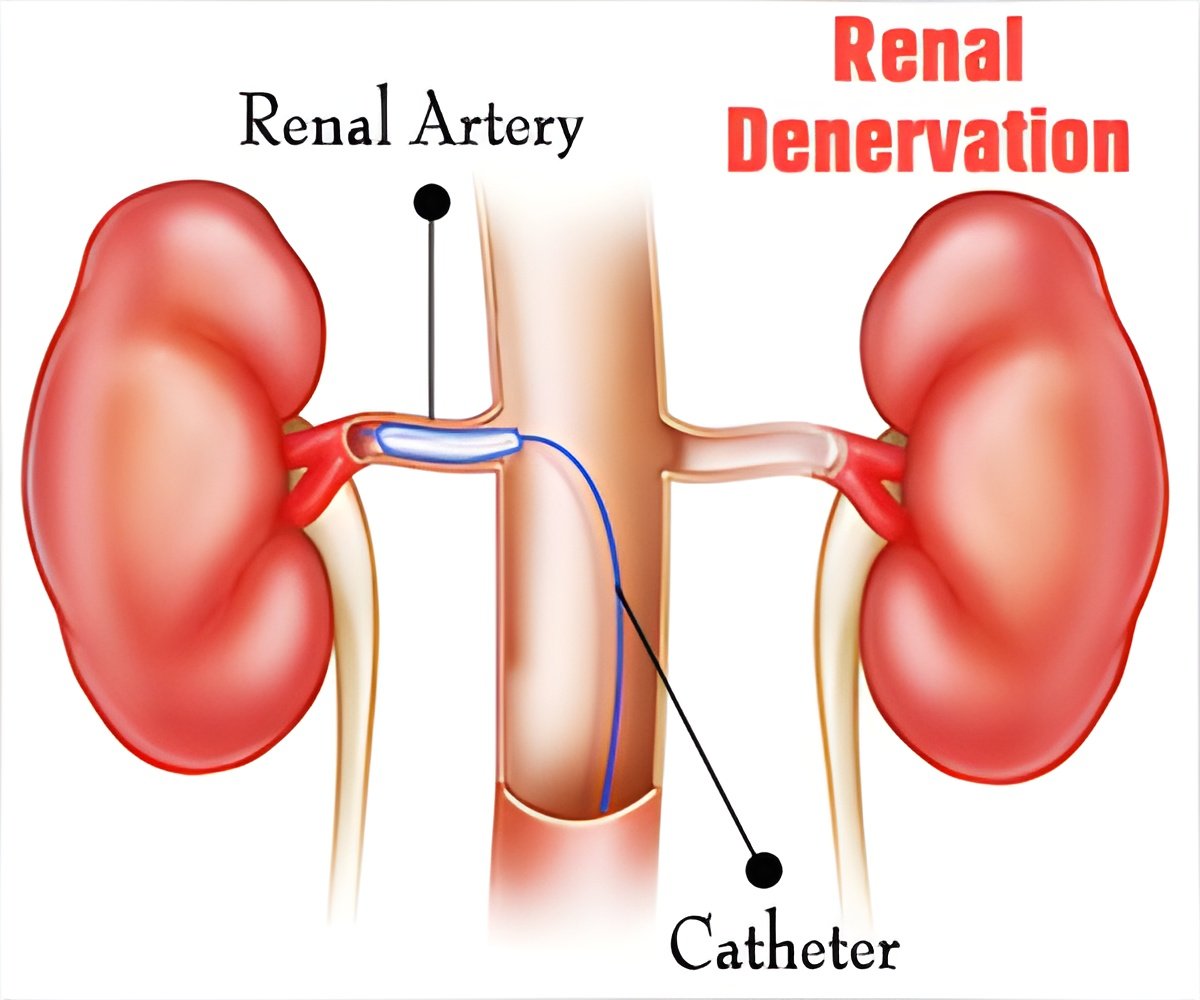Renal denervation led to reductions in BP, and muscle and renal sympathetic activity. But, there were no changes in endothelial function and inflammatory markers.

Hypertension is known to be associated with inflammation of blood vessels and endothelial dysfunction (endothelium is the inner layer of the blood vessels). Researchers carried out a study to determine whether treatment with renal denervation can also reduce vascular inflammation or affect endothelial function.
A study was conducted in 63 patients with resistant hypertension at an average age of 61 years. At the beginning of the study, the study participants had a high body mass index, and were taking an average of 4.6 medications for hypertension.
After renal denervation, BP was significantly reduced from 169/90 mmHg at baseline () to 156/84 mmHg three months following the procedure. This reduction was sustained even at 12 months follow-up. Also, there was no significant change in the heart rate.
The researchers found that there was no significant change in endothelial function and various inflammatory markers from the baseline at the end of 3 months after the administration of renal denervation. Only the level of nonesterified fatty acid (NEFA) significantly decreased, which was possibly due to reduced nervous activity in the adipose tissue following the procedure. The activity of the sympathetic nervous system was reduced in the muscle and kidneys, but the whole body sympathetic activity did not change significantly over 3 months.
The researchers thus concluded that though renal denervation causes a reduction in blood pressure, it does not affect vascular inflammation and endothelial function.











